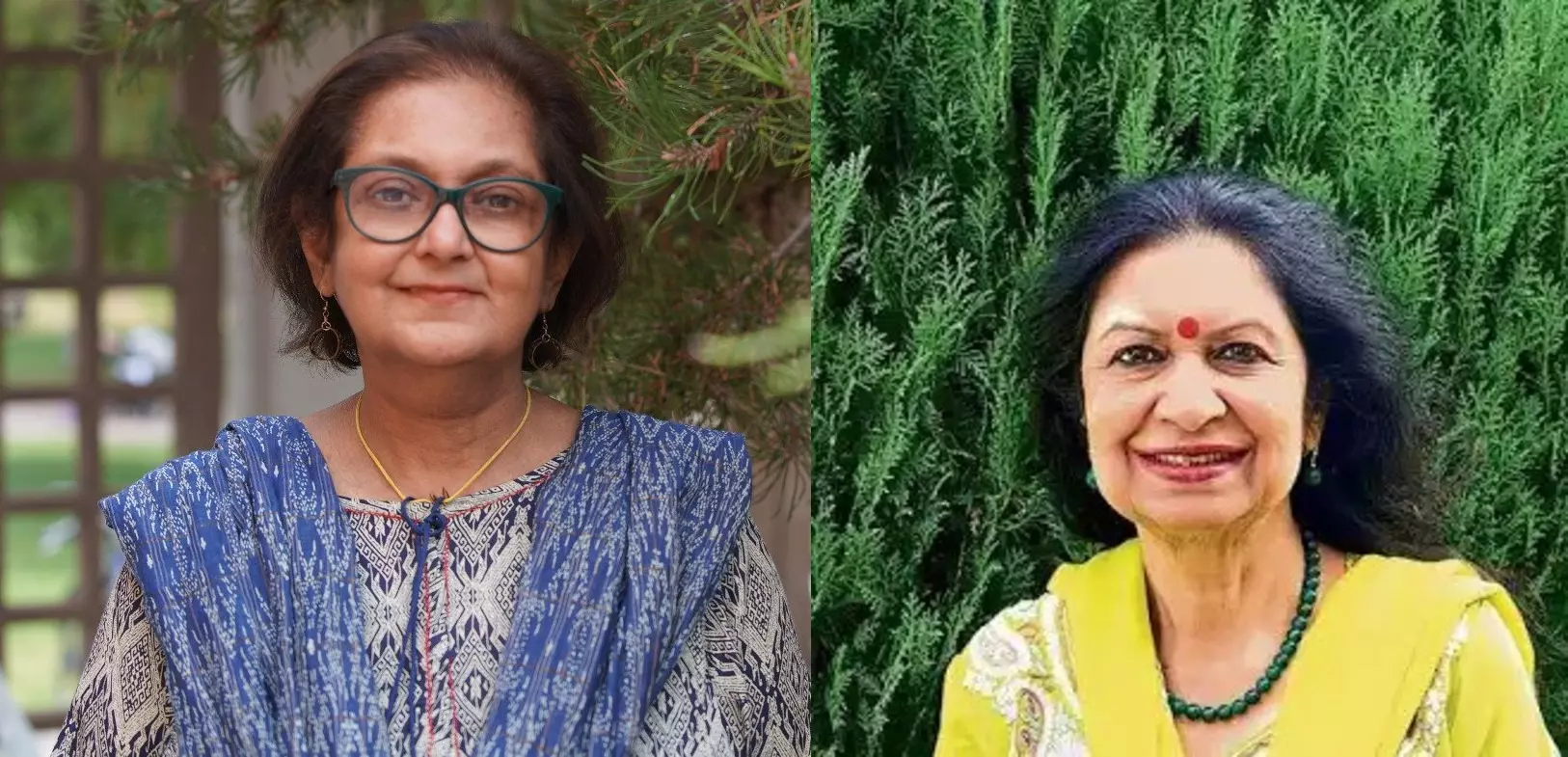Interview | Lakshmi, Radha, Sita a triptych on the sacred feminine: Namita Gokhale

Lakshmi, Radha, Sita a triptych on the sacred feminine: Namita Gokhale
Eminent writer Namita Gokhale whose bestseller, Paro, just turned 40, and the scholar Prof. Malashri Lal have collaborated to edit a diverse collection of essays dedicated to the goddess of wealth, Lakshmi. The obvious reason notwithstanding, are there any others to celebrate this mythological figure? Sucheta Dasgupta digs deep; the illustrious pair provides eye-openers:
A Vaishnavite consort goddess like Sita and Radha, a fickle and enigmatic figure, or a symbol of good luck: What is the rationale behind choosing Lakshmi as the centrepiece of the final book in your goddess trilogy?
NG: For me, each of these books was a journey, a quest. Both Sita and Radha are considered emanations of Lakshmi. Our anthologies, In Search of Sita and Finding Radha attempt a deeper understanding of these very different aspects of the sacred feminine. But Sri Lakshmi remained an enigma. Working on Treasures of Lakshmi: The Goddess Who Gives was a profoundly moving experience which yielded deep insights and unexpected learnings.
ML: The oldest reference to Lakshmi is as Shri and she appears in the ‘Sri Suktam’ and the Satapatha Brahmana. But Lakshmi has reincarnated many times to continue to be married to Vishnu. So the Sita figure and even the Radha figure according to some scriptural references are incarnations of Lakshmi. There is the Lakshmi of the Sanskritic tradition and there is the Lakshmi of folklore and together they make a huge variety of traditions and this is the first book that brings them together.
What is your favourite myth about Lakshmi?
NG: I am intrigued by Lakshmi’s relationship with her unfortunate sister Alakshmi, and the sorority she continues to extend to her.
ML: This is a story that is written by Balaram Das and it enforces the idea that Lakshmi is a wandering goddess. This particular story involves Lakshmi teaching her husband Jagannath and her brother-in-law Balaram a lesson for objecting to her visiting the poorer areas of the city. She walks out on them and with her goes the grain and the well-being, and in the end they apologise to her while her poor devotee, too, gets her well-earned prosperity.
Why is Lakshmi the most worshipped goddess in India even beating the Mother Goddess Durga, not to mention Kali and Saraswati?
NG: We reach out to different goddess figures at different phases of our internal evolution. Lakshmi is the goddess of abundance and plenty, of stability and harmony. Her presence is an important part of family and community life.
ML: It would be a guess, but I would say that Lakshmi has a very wide scope of influence, from grain to wellness and health and generosity, from helping out the less fortunate to feeding the starving, abiding by all the criteria of being a good person; she is not just about money and luxuries. Kuber is also the god of wealth, but he is not worshipped.
The ballad of Lakshmi or the goddess’ vratakatha that is repeated in homes weekly enjoins women to be obedient and docile. Is it not time to retire this text?
NG: Vratkathas are a fascinating narrative format. They are not written in stone but continually reinterpreting themselves.
ML: There are many vratkathas of Lakshmi. This is a text which exists in its own time. Mythology is a wonderfully rich area for entering with contemporary eyes for every generation.
What is your next book all about?
NG: I have a new novel which has just been released. It is titled Never Never Land. I enjoyed writing it though I’m not sure what it’s about. I hope readers enjoy it.
ML: Namita and I are working on a collection of mountain folklore and folk tales, particularly in the less known languages. Balti, for instance, is one of them. We have one story that shows polo as a game started there.
Fiction or non-fiction: What is your favourite form?
NG: No favourites — there are phases in reading and writing both, and these feed into each other.
ML: I write mostly non-fiction and I have now done a book of poems called Mandalas of Time. This is my first book of poems.
What is your favourite thing about this year’s JLF?
NG: We had a wonderful 2024 edition of the festival. The audience engagement this year was simply amazing. This always provokes the speakers to give of their best.
ML: I have attended every single edition of JLF. I enjoy interacting with other authors and readers, the atmosphere and spirit of open inquiry.

